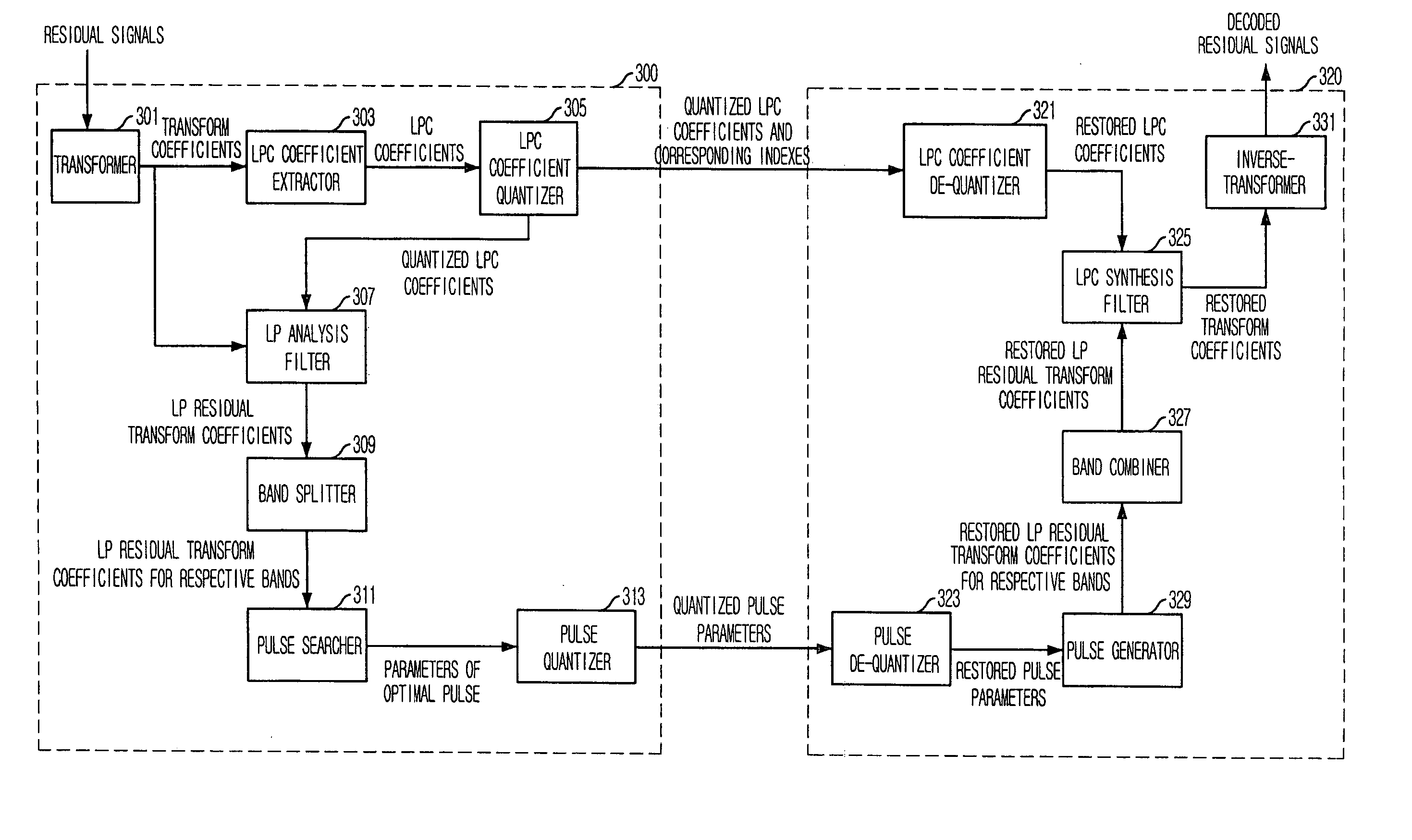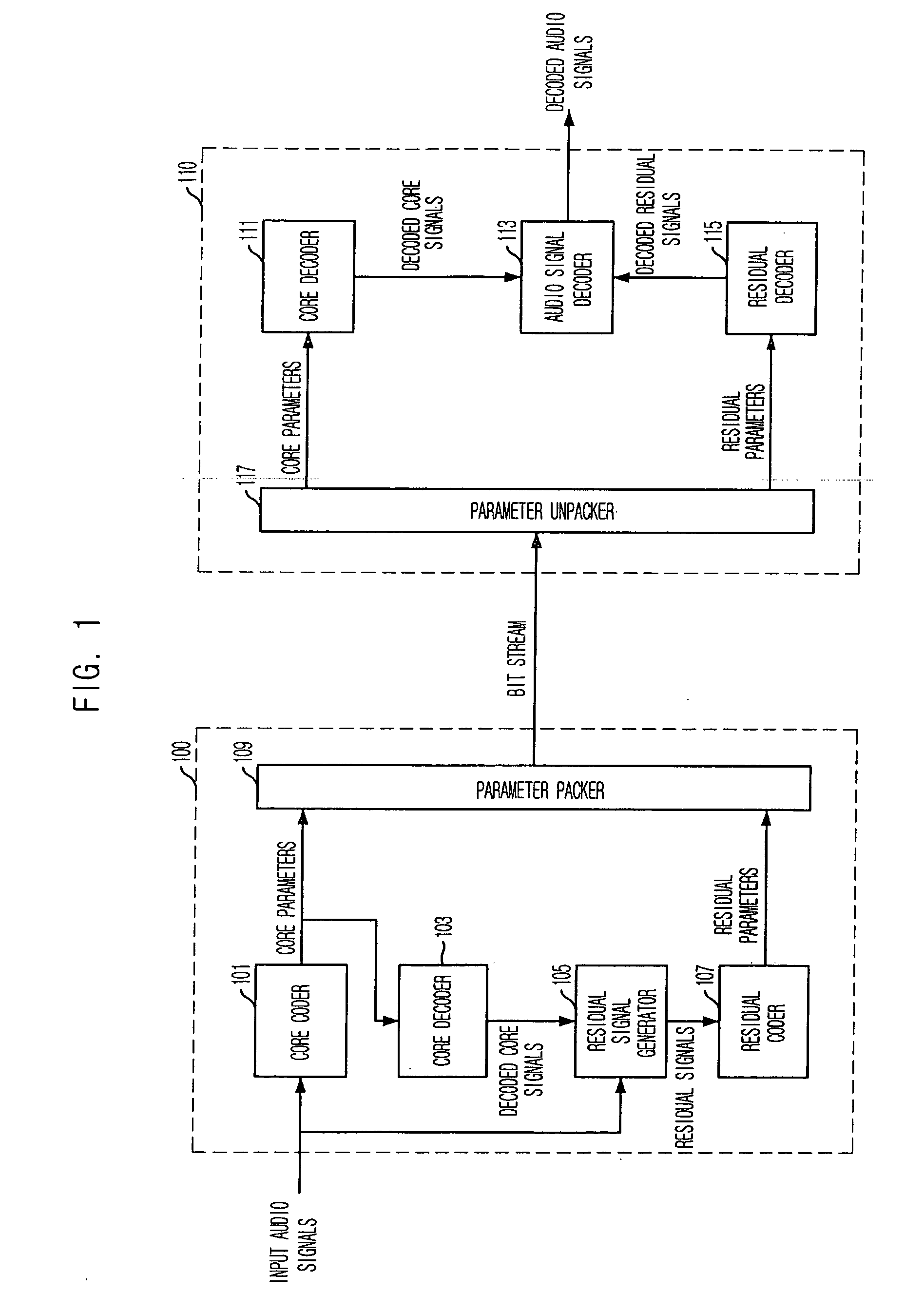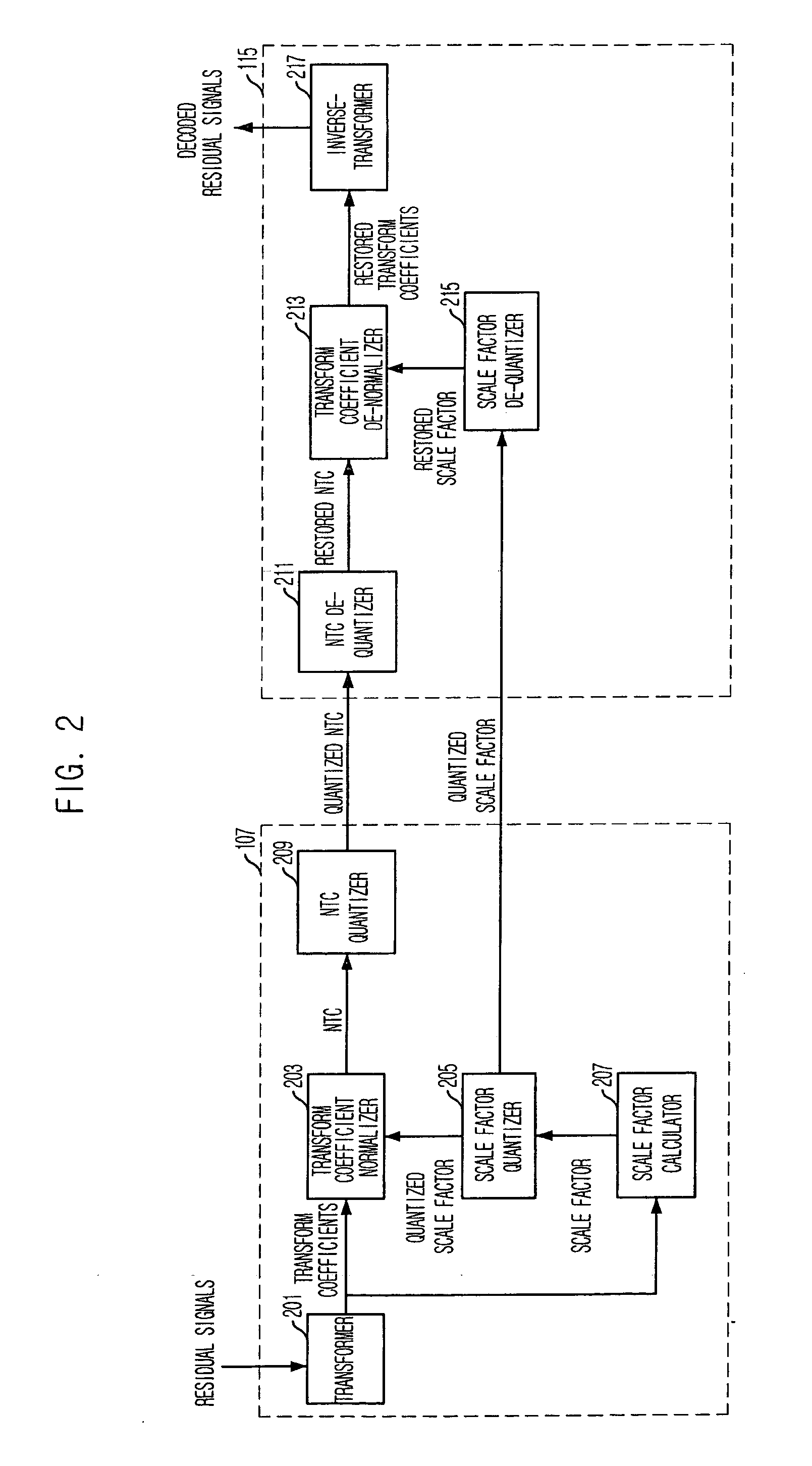Apparatus and method for coding and decoding residual signal
a residual signal and audio coding technology, applied in the field of audio coding/decoding technology, can solve the problems of degrading an audio quality, requiring a large amount of computational complexity, and a large amount of memory requirements, so as to reduce the amount of computational complexity, enhance the audio quality, and save the memory requirement
- Summary
- Abstract
- Description
- Claims
- Application Information
AI Technical Summary
Benefits of technology
Problems solved by technology
Method used
Image
Examples
Embodiment Construction
[0029] Reference will now be made in detail to the preferred embodiments of the present invention, examples of which are illustrated in the accompanying drawings. Detailed descriptions about well-known functions or structures will be omitted if they are deemed to obscure the subject matter of the present invention.
[0030]FIG. 3 is a block diagram of a residual signal coding / decoding apparatus for coding / decoding a residual signal using a transform coding scheme in accordance with an embodiment of the present invention.
[0031] The residual signal coding / decoding apparatus according to the present invention can be applied to the audio coding / decoding apparatus using the residual signal coding method of FIG. 1.
[0032] A residual signal coding apparatus 300 includes a transformer 301, a linear predictive coding (LPC) coefficient extractor 303, an LPC coefficient quantizer 305, a linear prediction (LP) analysis filter 307, a band splitter 309, a pulse searcher 311, and a pulse quantizer ...
PUM
 Login to View More
Login to View More Abstract
Description
Claims
Application Information
 Login to View More
Login to View More - R&D
- Intellectual Property
- Life Sciences
- Materials
- Tech Scout
- Unparalleled Data Quality
- Higher Quality Content
- 60% Fewer Hallucinations
Browse by: Latest US Patents, China's latest patents, Technical Efficacy Thesaurus, Application Domain, Technology Topic, Popular Technical Reports.
© 2025 PatSnap. All rights reserved.Legal|Privacy policy|Modern Slavery Act Transparency Statement|Sitemap|About US| Contact US: help@patsnap.com



